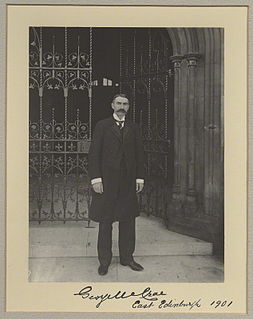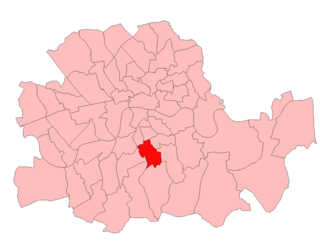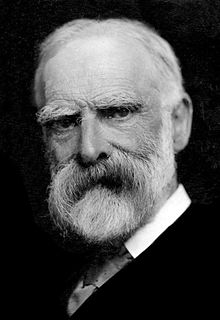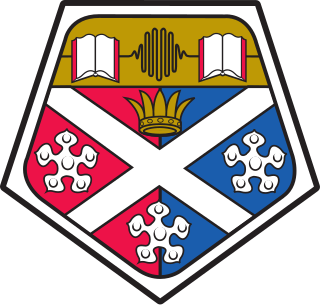
Sir Charles Edward Mallet, was a British historian and Liberal politician. He was knighted in 1917.
The Coalition Coupon was a letter sent to parliamentary candidates at the United Kingdom general election, 1918, endorsing them as official representatives of the Coalition Government. The 1918 election took place in the heady atmosphere of victory in the First World War and the desire for revenge against Germany and its allies. Receiving the coupon was interpreted by the electorate as a sign of patriotism that helped candidates gain election, while those who did not receive it had a more difficult time as they were sometimes seen as anti-war or pacifist. The letters were all dated 20 November 1918 and were signed by prime minister David Lloyd George for the Coalition Liberals and Bonar Law, the leader of the Conservative Party. As a result, the 1918 general election has become known as 'the coupon election'.

Sir William Ryland Dent Adkins was an English barrister, judge and Liberal politician.

The Bodmin by-election, 1922 was a parliamentary by-election for the British House of Commons. The constituency of Bodmin in Cornwall polled on 24 February 1922. The by-election was notable for the opposition Liberal Party gaining a seat from the Coalition supporting Conservative Party.
The Argyllshire by-election, 1920 was a parliamentary by-election held for the British House of Commons constituency of Argyllshire on 10 March 1920.

Colonel Sir George McCrae DSO MP was a Scottish textile merchant and Liberal Party politician. In Scotland he is best remembered for the creation of McCrae's Battalion, also known as the Second Edinburgh Pals Battalion and (officially) the 16th Battalion Royal Scots.
The Northampton by-election was a parliamentary by-election held for the British House of Commons constituency of Northampton on 1 April, 1920.

Maurice Alexander, was a Canadian barrister and soldier who later moved to England and had careers in the Diplomatic Service, English law and politics.

Sir John Bertrand Watson was an English lawyer, Chief Metropolitan Magistrate and Liberal Party politician.

Sir Andrew William Barton was a British Liberal politician and businessman.
The Chesterton by-election, 1916 was a parliamentary by-election held for the House of Commons constituency of the Chesterton or Western Division of Cambridgeshire on 20 January 1916.
The Spalding by-election, 1917 was a parliamentary by-election held for the House of Commons constituency of Spalding in Lincolnshire on 25 October 1917.

Edward Smallwood was an English coal merchant and Liberal Party politician.
The Dundee by-election, 1917 was a parliamentary by-election for the British House of Commons constituency of Dundee in the county of Angus held on 30 July 1917.
The South Monmouthshire by-election, 1917 was a by-election held on Thursday 12 July 1917 for the British House of Commons constituency of the Southern Division of Monmouthshire in South Wales.
The Edinburgh South by-election, 1917 was a parliamentary by-election held for the House of Commons constituency of Edinburgh South in Scotland on 12 May 1917.
The Derby by-election, 1916 was a parliamentary by-election held for the House of Commons constituency of Derby, the county town of Derbyshire on 29 December 1916.
The Whitechapel by-election, 1916 was a parliamentary by-election held on 28 December 1916 for the House of Commons constituency of Whitechapel, an electoral division of Tower Hamlets in East London.
The North Cumberland by-election of 1926 was held on 17 September 1926. The by-election was held due to the succession to the peerage of the incumbent Conservative MP, Donald Howard. It was won by the Conservative candidate Fergus Graham.

The Camberwell North West by-election, 1920 was a parliamentary by-election held for the British House of Commons constituency of Camberwell North West in the South London district of Camberwell on 31 March 1920.















